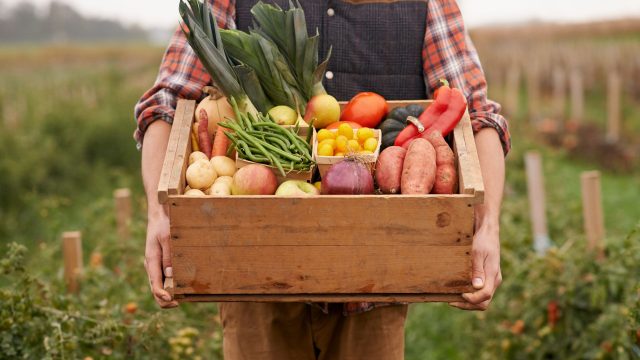28
Apr
Despite 45+ Million People Lacking Access to Food, Trump Administration Withholds Funds for Local Food Systems

(Beyond Pesticides, April 28, 2025) Despite the rising number of households without adequate access to food (18 million or 13.5% of households, or over 45 million people in 2023, including children, according to the U.S. Department of Agriculture’s Economic Research Service), government programs to support local food systems are being dismantled by the Trump Administration. For several years, farmers, schools, and food distributors have been working together to provide fresh, local food in schools and food pantries across the nation, thanks to two programs at USDA—the Local Food for Schools (LFS) Cooperative Agreement Program and the Local Food Purchase Assistance (LFPA) Cooperative Agreement Program.Â
USDA has canceled the two programs that gave states, tribal governments, schools, and food banks money to buy local food from farmers. The LFS program awards money to states to buy local foods for schools and childcare institutions, and the LFPA program provides funding for state, tribal, and territorial governments to buy food produced within the state or within 400 miles of delivery destinations.Â
Hunger is a serious problem, and the loss of this funding endangers the local programs that often use volunteers and depend on donations to meet their budgets.Â
Combined, the programs would have provided more than $1 billion this fiscal year. The loss of these funds will have lasting effects on local food networks. Farmers—many of whom shifted their crops to accommodate the demand of the programs—depend on these contracts. Food banks and local schools will lose out on high-quality local produce. Thus, the funding cuts hurt hungry people as well as the farmers who grow the food. The programs have also been beneficial to organic farmers, who frequently market their produce locally, by providing a dependable market.
Congress has the power to create permanent versions of these programs that farmers and communities can depend on through the Farm Bill.
Letter to Congress
For several years, farmers, schools, and food distributors have been working together to provide fresh, local food in schools and food pantries across the nation, thanks to two programs at the U.S. Department of Agriculture (USDA)—the Local Food for Schools (LFS) Cooperative Agreement Program and the Local Food Purchase Assistance (LFPA) Cooperative Agreement Program.
USDA has canceled the two programs that gave states, tribal governments, schools, and food banks money to buy local food from farmers. The LFS program awards money to states to buy local foods for schools and childcare institutions, and the LFPA program provides funding for state, tribal, and territorial governments to buy food produced within the state or within 400 miles of delivery destinations.
Hunger is a serious problem in our state, and the loss of this funding endangers the local programs that often use volunteers and depend on donations to meet their budgets.
Combined, the programs would have provided more than $1 billion this fiscal year. The loss of these funds will have lasting effects on local food networks. Farmers—many of whom shifted their crops to accommodate the demand of the programs—depend on these contracts. Food banks and local schools will lose out on high-quality local produce. Thus, the funding cuts hurt hungry people as well as the farmers who grow the food. The programs have also provided a dependable market for organic farmers.
Congress has the power to create permanent versions of these programs that farmers and communities can depend on through the Farm Bill.Â
Please publicly support permanent funding for local food purchasing through the Farm Bill.
Thank you.










